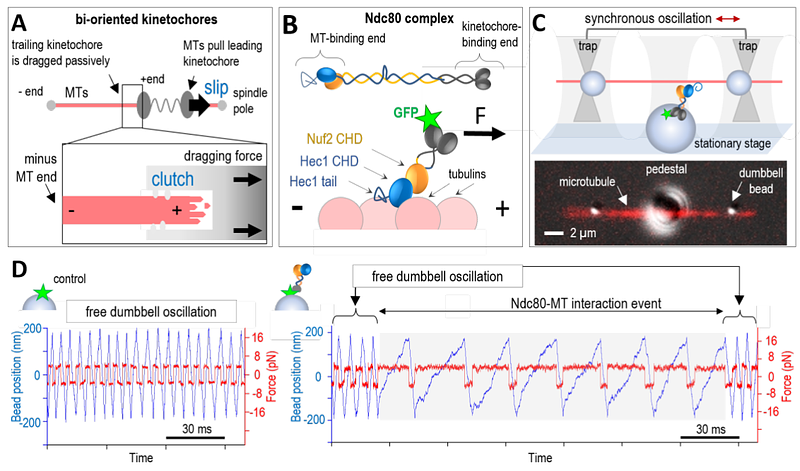Ndc80 complex, a conserved coupler for kinetochore-microtubule motility, is a sliding molecular clutch

Ndc80 complex, a conserved coupler for kinetochore-microtubule motility, is a sliding molecular clutch
Demidov, V.; Gonchar, I.; Tripathy, S. K.; Ataullakhanov, F. I.; Grishchuk, E.
AbstractChromosome motion at spindle microtubule plus-ends relies on dynamic molecular bonds between kinetochores and proximal microtubule walls. Under opposing forces, kinetochores move bi-directionally along these walls while remaining near the ends, yet how continuous wall-sliding occurs without end-detachment remains unclear. Using ultrafast force-clamp spectroscopy, we show that single Ndc80 complexes, the primary microtubule-binding kinetochore component, exhibit processive, bi-directional sliding. Plus-end-directed forces induce a mobile catch-bond in Ndc80, increasing frictional resistance and restricting sliding toward the tip. Conversely, forces pulling Ndc80 away from the plus-end trigger mobile slip-bond behavior, facilitating sliding. This dual behavior arises from force-dependent modulation of the Nuf2 calponin-homology domain microtubule binding, identifying this subunit as a friction regulator. We propose that Ndc80c ability to modulate sliding friction provides the mechanistic basis for the kinetochore end coupling, enabling its slip-clutch behavior.